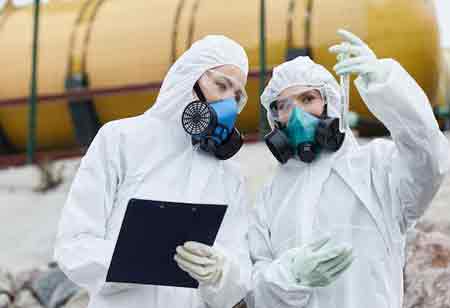Thank you for Subscribing to Environmental Business Review Weekly Brief
Cutting-Edge Advancements Driving the Future of Environmental Compliance
The circular economy minimizes waste and maximizes resource efficiency by recycling, reusing, and repurposing materials.

By
Environmental Business Review | Monday, May 05, 2025
Stay ahead of the industry with exclusive feature stories on the top companies, expert insights and the latest news delivered straight to your inbox. Subscribe today.
FREMONT, CA: Given the technological changes and increased concerns about sustainability, environmental compliance is no longer a regulatory obligation but an avenue for opportunities. Advanced monitoring technologies, such as IoT sensors, drones, and satellite imagery, provide real-time data on air quality, water levels, soil health, and emissions, allowing businesses to detect and act on environmental issues before they develop into major ones. These technologies ensure compliance, efficiency, cost savings, and an upbeat corporate reputation.
The innovation ensures compliance, enhances operational efficiency and reduces costs associated with manual monitoring and reporting. Businesses can identify patterns and trends related to environmental impact and compliance performance by analyzing large datasets. Predictive analytics can forecast potential compliance issues, allowing companies to take preventive measures. Predictive models can anticipate equipment failures that might lead to environmental breaches, enabling timely maintenance and avoiding costly penalties. The data-driven approach supports more informed decision-making and strategic planning, improving environmental outcomes and cost savings.
Blockchain’s decentralized and immutable ledger system ensures that all transactions and data entries are transparent and cannot be altered. The technology can track the lifecycle of products, ensuring that they meet environmental standards at every stage of production and distribution. Blockchain can verify that materials used in manufacturing are sourced sustainably and comply with environmental regulations. Green technologies minimize ecological impact and often lead to cost savings. Companies that adopt these technologies comply with laws and benefit from government incentives, subsidies, and tax breaks for sustainable practices.
Adopting circular economy practices offers a sustainable approach to environmental compliance. Companies can implement circular practices such as closed-loop recycling, product take-back programs, and designing products for longer life cycles. The practices reduce the need for raw materials, lower waste management costs, and ensure compliance with waste disposal regulations. Innovations in environmental compliance are increasingly linked to Corporate Social Responsibility and stakeholder engagement. Businesses prioritizing ecological compliance as part of their CSR initiatives demonstrate a commitment to sustainability, attracting environmentally conscious consumers and investors.
Engaging stakeholders through transparent communication about environmental practices and compliance efforts builds trust and strengthens relationships. Companies can leverage their compliance achievements in marketing and branding, enhancing their market position and fostering customer loyalty. Advanced monitoring and reporting technologies, big data and predictive analytics, blockchain, renewable energy, green technologies, circular economy practices, and enhanced CSR initiatives drive this transformation. Businesses can ensure compliance, reduce costs, improve efficiency, and build a positive reputation. The shift towards proactive and sustainable environmental practices benefits the environment and positions companies for long-term success in an increasingly eco-conscious market.





